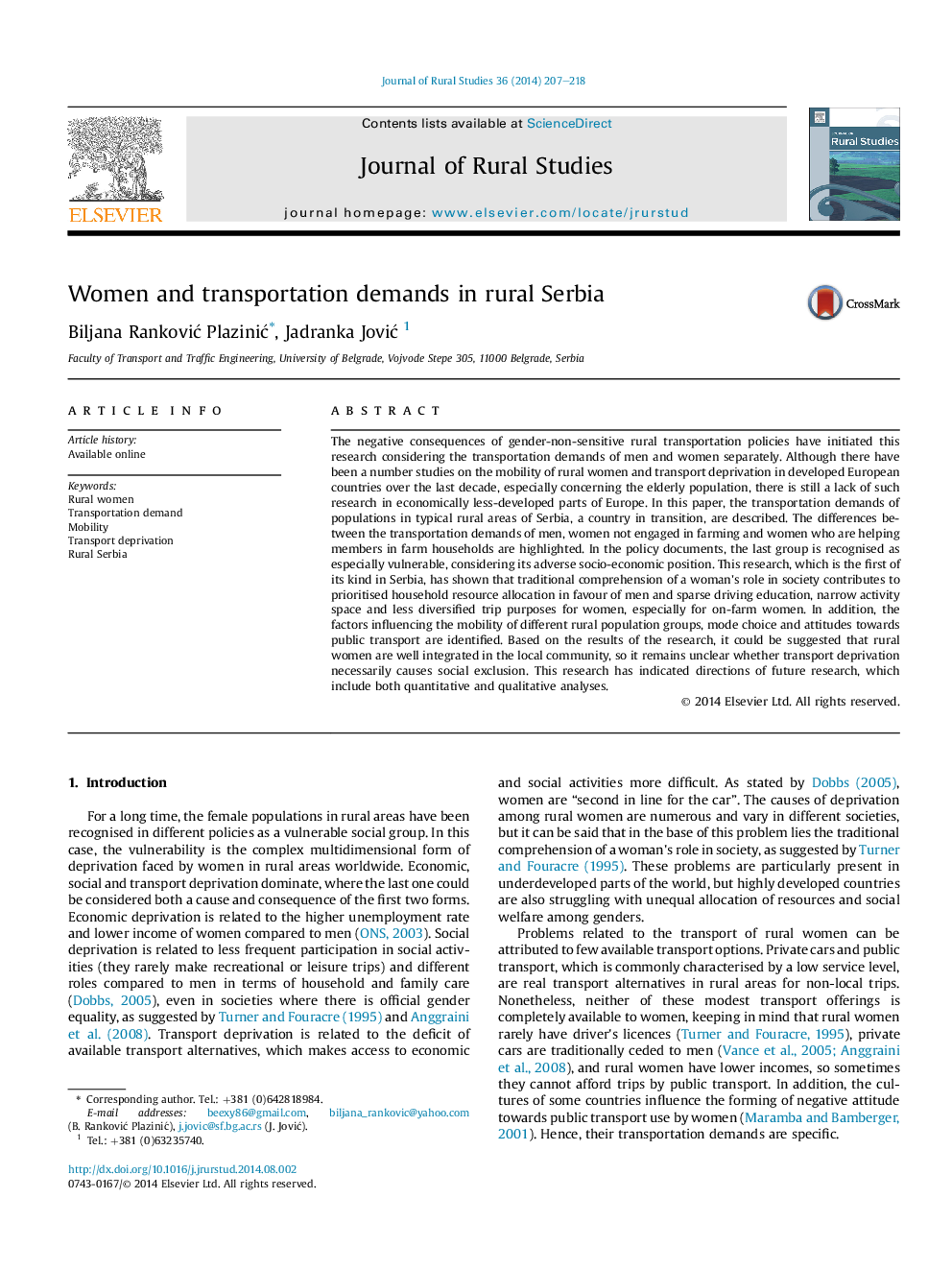| Article ID | Journal | Published Year | Pages | File Type |
|---|---|---|---|---|
| 6545745 | Journal of Rural Studies | 2014 | 12 Pages |
Abstract
The negative consequences of gender-non-sensitive rural transportation policies have initiated this research considering the transportation demands of men and women separately. Although there have been a number studies on the mobility of rural women and transport deprivation in developed European countries over the last decade, especially concerning the elderly population, there is still a lack of such research in economically less-developed parts of Europe. In this paper, the transportation demands of populations in typical rural areas of Serbia, a country in transition, are described. The differences between the transportation demands of men, women not engaged in farming and women who are helping members in farm households are highlighted. In the policy documents, the last group is recognised as especially vulnerable, considering its adverse socio-economic position. This research, which is the first of its kind in Serbia, has shown that traditional comprehension of a woman's role in society contributes to prioritised household resource allocation in favour of men and sparse driving education, narrow activity space and less diversified trip purposes for women, especially for on-farm women. In addition, the factors influencing the mobility of different rural population groups, mode choice and attitudes towards public transport are identified. Based on the results of the research, it could be suggested that rural women are well integrated in the local community, so it remains unclear whether transport deprivation necessarily causes social exclusion. This research has indicated directions of future research, which include both quantitative and qualitative analyses.
Related Topics
Life Sciences
Agricultural and Biological Sciences
Forestry
Authors
Biljana RankoviÄ PlaziniÄ, Jadranka JoviÄ,
